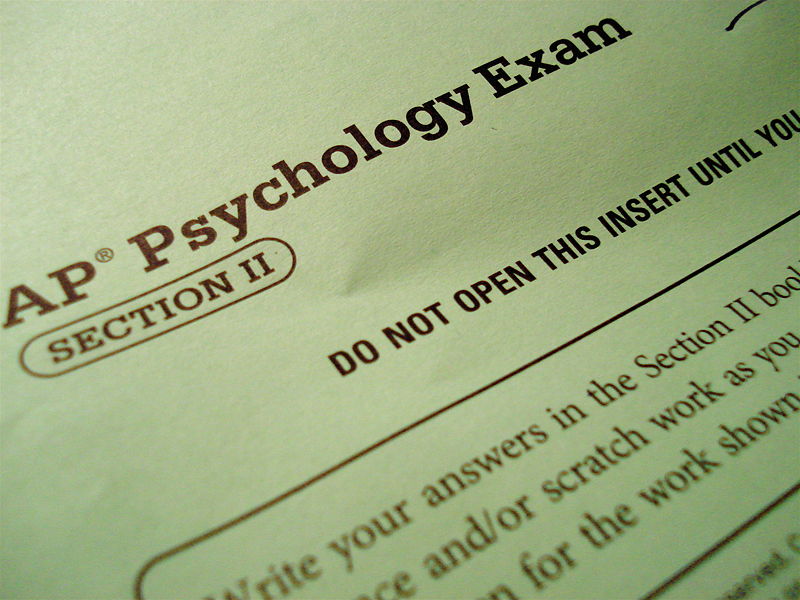Dobbins: AP exams — overpriced and overrated
Alton, CC BY-SA 3.0, via Wikimedia Commons
Students feel pressured to take AP courses and exams to help their college applications.
October 18, 2021
Getting three hours of sleep at night. Paying almost $100 for a booklet and an answer sheet. Spending nearly every moment of free time studying. All these are hallmarks of the infamous Advanced Placement (AP) exams, one of the most widely subscribed-to scams in the American education system. Every year in May, over one million high school students sit through hours worth of testing in the hopes of earning some college credit hours; however, between all the stress that comes with taking AP exams and the fact that they might not even help a student in college, AP exams are not worth signing up for.
Stress about standardized testing in American students is already at an alarming high, and AP exams are especially notorious for giving students anxiety. Most courses seem to cover a lot of material without enough time to allow students to fully comprehend what they are learning.
Furthermore, the exams are outrageously priced. This school year, registering for each exam costs $96, with late fees charging a whopping $225. Obviously, many students from low-income families cannot afford this. Even with a fee reduction for financial need, the exam would cost $53, a price still impossible to pay for some households. And should a student make below a 3 on an exam (almost half of all test-takers in some subjects), they would have wasted their money since a failing grade does not give college credit — and in some cases, students must make a 4 or 5 for credit.
Nevertheless, many students put up with the extreme stress and steep prices in exchange for possibly being awarded college credit and experience with taking rigorous courses. However, even making a 5 — the highest score possible — on an exam does not guarantee a student any significant boost in college. For one, many AP classes are not similar at all to a real college course. In 2013, Dartmouth College announced they would not grant any credit to students for their AP scores after a study done by the school. The college administered a test based on its introductory psychology final exam to admitted students that made a 5 on the AP psychology exam. The study found the students who had made a 5 on the AP exam did not significantly outperform students who scored lower, revealing that AP exams may not be strong indicators of a student’s knowledge of a subject.
While many public colleges do grant credit based on AP scores, several private colleges no longer grant AP credit. In some cases, the most scoring well on an AP exam will do for a student in college is allow them to skip an introductory course, but then the student may not be prepared for the more advanced courses.
All in all, AP exams do little to actually help a student. If anything, they simply take a student’s money for nothing much in return. Though the exams may be regarded as beneficial in some circles, most information suggests otherwise.









